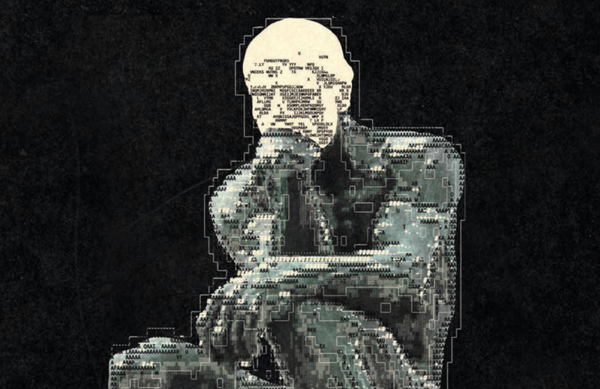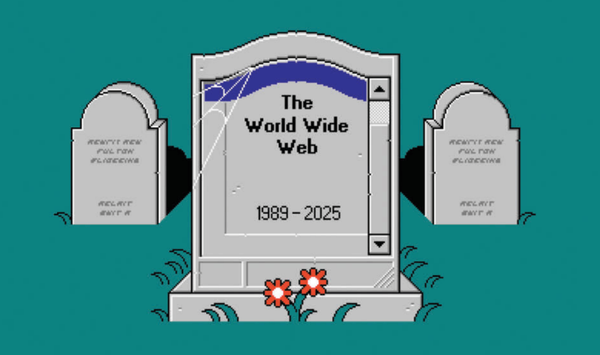强权即公理
这篇来自《大西洋月刊》的评论文章描绘并警示了,一个以“强权即公理”为信条的特朗普政府,将如何系统性地瓦解美国传统的“软实力”外交 。文章以美国国际开发署(USAID)被迅速解散为例 ,生动揭示了这种从合作转向胁迫的政策,将导致全球疫苗与营养补充等人道主义项目的终止 。

要想瓦解联邦政府,并将其改造为个人权力和意识形态斗争的工具,最好的方法就是从软柿子捏起。 没什么比把纳税人的钱送给那些我们不认识的、贫穷腐败的远方国家的人们更不受欢迎的了。
2025年1月20日,就在就职典礼后数小时,唐纳德·特朗普总统签署了一项行政命令,冻结了对外援助。 美国国际开发署(USAID)被命令停止几乎所有工作。 其华盛顿总部被来自马斯克(Elon Musk)所辖的“政府效率部”的一帮青年才俊们占领,他们还收缴了敏感数据。 承包商被解雇,雇员被置于无限期休假状态;那些在海外执行任务的人员,则被给予30天时间携家人返回美国。
USAID的网站消失了,然后又重新出现,上面只剩下一份关于该组织被肢解的简单公告,最后附上了一句话:“感谢你们的服务。” 一位资深的USAID官员称此举“野蛮至极——出自某个一无所知的20岁白痴之手。” 如果你深入调查那些指控,几乎所有指控要么是彻头彻尾的谎言,要么是极具误导性的说法,又或者只是任何组织中都可能存在的愚蠢浪费项目的孤例。
在没有工作人员或资金的情况下,USAID在全球范围内的努力——尼泊尔的疫苗接种运动、尼日利亚的艾滋病药物分发、苏丹难民营中饥饿儿童的营养补充——被迫终止。 作家兼外科医生、也是该机构全球健康局最近一任(或许也是最后一任)负责人的阿图·葛文德(Atul Gawande)告诉我:“这套基础设施曾使人类的预期寿命翻了一番。拆掉它,就是要人命。”
特朗普和马斯克对USAID的摧毁是一场闪电战试验:先将坦克和轰炸机派往毫无防备的波兰,看看效果如何,然后再转向对付西方大国。 这次攻击为铲除联邦官僚机构的其余部分提供了范本,同时也展示了特朗普对美国在世界所扮演角色的激进观点。
从富兰克林·罗斯福到巴拉克·奥巴马,每一位总统都明白,将美国的力量与联盟、制度以及美国人民所支持的价值观(如自由、多元主义和人道主义)相结合,能够增强而非削弱美国的力量。 这些并非单纯的慷慨之举,其目的在于防止混乱和苦难席卷他国,并最终伤害到我们自己。 它们通过吸引而非胁迫来扩大美国的影响力。政治学家称之为“软实力”。
然而,软实力及其伪善的替代方案,绝不会是一个更谦卑的美国外交政策。 对这个超级大国而言,选择只在于开明的自利(及其所有的盲点和失败)与赤裸裸的胁迫之间。
特朗普正在展示赤裸裸的胁迫是什么样子。 “美国优先”与其说是孤立主义,不如说是帝国主义。 他正利用一位技术未来主义的亿万富翁,将美国带回到19世纪末——那个时代的官僚系统是政治恩惠的分赃网络,而大国信条则是“强权即公理”。 他正在为自己和这个国家摆脱所有约束性的准则——国内的法治和海外的基于规则的秩序——并用一个简单的问题取而代之:“这对我有什么好处?” 他正在单方面解除美国的软实力,让美国变得与俄罗斯或伊朗毫无二致。
忠诚和同情心并非美国身份之外的东西;它恰是国家自豪感的核心,对它的背叛会带来无法轻易衡量的代价。
以下是该计划被叫停所意味的一切:我与一位曾和美国人并肩作战的阿富汗特种部队上尉交谈过。 2021年喀布尔即将陷落时,他在机场阻止了武装的塔利班分子夺取美国的武器,但在撤离中他却被留了下来。 他被新政权逮捕入狱七个月,遭受了规律且残酷的酷刑,包括一侧睾丸被切除。 2023年,他设法与家人逃往巴基斯坦,在特朗普上任时,他作为难民的审批流程已接近尾声。
他曾听特朗普批评拜登政府在阿富汗遗留军事装备。 他告诉我,因为他曾努力阻止此事发生,“这给了我一丝希望,觉得新政府会珍视我的工作,把我视为一个有价值的人……这会给我的孩子和家人一个安全离开的机会。” 拜登的无能让这位上尉搁浅了一次;特朗普的冷酷无情正在让他再次搁浅。
拜登政府曾设立一个名为“欢迎团”(Welcome Corps)的项目,允许普通美国人担当难民安置机构的角色。 在宾夕法尼亚州,一位名叫查克·普(Chuck Pugh)的退休人员组建了一个赞助小组,准备将一个阿富汗家庭带到这里,最后的体检恰好在总统就职日前完成。 当安置计划被突然终止时,普发现自己不禁在想:我们到底是谁? 我知道我想成为什么样的人,但我只是不确定了。
赞助小组里包括普的妹妹,弗吉尼亚·米拉(Virginia Mirra)。 她和丈夫是虔诚的基督徒,也是特朗普的热切支持者。 当我问她对暂停难民计划有何感想时,她听起来很惊讶,也很失望自己竟没听说这个消息。 “我为此感到难过,”她说。 “这确实困扰我。我开始慢慢理解了。这些人身处险境,我不知道是否会为他们破例。我们该怎么做呢?”【全文完】
原文分析
这篇来自美国知名杂志《大西洋月刊》(The Atlantic)的文章是一篇非常典型的带有鲜明立场和深刻忧思的政治评论,非常适合我们用来演练原文分析的技巧。
首先,在深入分析之前,我们必须对文章涉及的一些关键背景知识有所了解。这篇文章的核心是围绕美国对外援助署(USAID)的存废展开的。USAID是美国执行对外非军事援助的主要政府机构,自1961年肯尼迪总统时期成立以来,它一直是美国推行其“软实力”(Soft Power)的重要工具。所谓“软实力”,指的是通过文化、价值观吸引和外交政策的合法性来影响别国,而非通过军事或经济的“硬实力”进行胁迫。文章以此为切入点,激烈地批判了特朗普(Donald Trump)及其代表的“美国优先”(America First)理念。该理念主张以单边主义和交易性思维取代传统的联盟和多边合作,文章作者认为这是一种“强权即公理”(Might makes right)的危险回归,将从根本上损害美国战后建立并主导的“基于规则的国际秩序”(rules-based order abroad)。
从主题、体裁、文体与结构来看,这篇文章的主题非常明确:它旨在警示读者,一个由“让美国再次伟大”(MAGA)理念驱动的政府,将如何系统性地瓦解美国以价值观和合作为基础的全球影响力,使其外交政策退化为纯粹的强力胁迫,最终在国际上与中、俄等国无异 。作为一篇典型的新闻评论(News Commentary),它的目的不是客观报道,而是提出观点、进行论证并说服读者。其文体充满激情,带有强烈的批判色彩和个人风格,并大量运用修辞手法和历史类比,例如将援助破坏者的轻率比作小说《了不起的盖茨比》中的人物 。在结构上,文章并非采用新闻报道常见的“倒金字塔体”,而是以USAID被解散这一具体案例作为开篇,逐步将论述扩展到美国外交政策的哲学层面,最后通过讲述阿富汗难民的个人遭遇,回归到关于美国国家道义和身份认同的情感呼吁上,结构严谨,层层递进。
具体来说,这篇文章的叙事结构堪称是议论文写作的典范,它完全不同于新闻报道中常见的“倒金字塔体”(Inverted Pyramid Structure) ,而是采用了一种“由具体到抽象,再回归具体”的环形论证结构。这种结构精心设计,旨在引导读者逐步深入作者的思辨过程,最终在情感和道义层面达成共鸣。我们可以将其拆解为以下几个逻辑步骤:
- 切入点:一个具体的“软目标”案例 (The Hook/Case Study) 作者开篇并没有直接抛出宏大的外交理论,而是选择了一个具体的、相对“冷门”的机构——美国国际开发署(USAID)——作为靶子。他生动地描绘了该机构如何在特朗普上任伊始就被迅速、粗暴地解散:数据被查封、员工被遣散、网站被清空。这种“以小见大”的写法,类似于我们教程中提到的“华尔街日报体”(Wall Street Journal Structure)的开篇“钩子” ,它用一个具体的故事抓住读者,将一个看似遥远的政策问题变得可感、可知。
- 观点提炼:揭示案例背后的真实意图 (The "Nut Graf"/Thesis) 在详细描述了USAID的遭遇后,作者迅速完成了从具体案例到核心论点的提炼。他明确指出,摧毁USAID并非孤立事件,而是一场“闪电战试验”(a trial blitzkrieg) ,其目的是为“清除联邦官僚机构的其余部分”提供一个模型 ,并展现了特朗普对美国世界角色的激进看法。 这一部分相当于文章的“核心段落”,点明了全文的主旨。
- 核心论证:构建二元对立的理论框架 (The Argumentative Body) 随后,文章进入了核心的理论辨析阶段。作者构建了一组清晰的二元对立:一边是自罗斯福(Franklin D. Roosevelt)到奥巴马(Barack Obama)以来,历届政府所奉行的、以联盟、制度和普世价值为基础的“软实力”外交(或者说“开明的自利”);另一边则是特朗普所代表的“赤裸裸的胁迫”(raw coercion)和“强权即公理”(might makes right)的哲学。他承认前一种模式存在虚伪和失败 ,但他论证说,后一种模式是更糟糕的选择,因为它将使美国与中、俄、伊朗等威权国家无异。
- 回归具体:以个人遭遇引发情感与道义共鸣 (The Emotional Return/Kicker) 在完成了宏大的理论叙事后,文章最精妙的一步是再次回归到具体的、个人的层面。作者通过讲述阿富汗特种部队上尉被抛弃和折磨的悲惨故事,以及美国本土的普通公民(如Chuck Pugh和他的妹妹Virginia Mirra)在参与难民安置计划时所面临的道德困境,将之前抽象的“软实力”和“国家道义”等概念,转化为活生生的人的命运和情感挣扎。这种处理方式极大地增强了文章的感染力,使读者不仅从理智上,更从情感上体会到政策转向所带来的“无法估量的代价”(a cost that can't be easily measured) 。
总结来说,这篇文章的叙事逻辑是一个从案例入手,上升到理论,再回归到人性的完整闭环。它通过精心布局,将一个复杂的政治议题,转化为一个关于事实、理论、情感和道德的多层次故事,其最终目的不仅是告知(to inform),更是为了说服(to persuade)和触动(to move)。在进行新闻编译时,理解并再现这种严谨的逻辑递进和情感节奏,是传达原文精髓的关键所在。
接着,我们来分析其信源、偏向和政治立场。这篇文章的来源《大西洋月刊》,根据第三方机构AllSides的评级,是一家明确的左翼/自由派(Left)媒体。作者乔治·帕克(George Packer)也是一位著名的自由派记者。因此,文章带有非常清晰的自由派和反特朗普立场,这并非隐藏的偏见,而是其作为观点性文章的题中之义。文章在用词上带有强烈的感情色彩和价值判断(如“犯罪组织”、“残忍”),并选择性地引用支持其论点的信源(如被解职的USAID官员和受助者),这些都可以看作是为强化其批判立场而使用的“偏见性标签”(Bias by Labeling)和“偏见性引导”(Bias by Spin)。
最后,从跨文化和国际传播特征来看,这篇文章是一个绝佳的案例,展示了一个国家内部关于自身国际角色的激烈辩论。它将美国的外交政策路线之争,描绘成两种根本对立的国家身份的冲突:一种是领导自由世界、输出价值观的“灯塔”美国;另一种是只顾自身利益、奉行强权政治的“帝国”美国。文章通过将后者的行为模式与中、俄等国直接类比,构建了一种强烈的“我们”与“他们”的对立框架,其目的在于警告国内读者,若选择“美国优先”道路,美国将丧失其独特性,沦为它曾经批判的“他者”。这种论述方式,深刻地反映了全球化时代下,大国内部的身份焦虑和对未来方向的迷茫。
编译策略
根据我们教程中的理论,选择编译方式需综合考量原文特性、传播目的和目标受众。这篇文章虽然观点深刻、文笔犀利,但全译并非理想之选。主要原因有二:首先,文章篇幅过长且文化背景过于浓厚。文中涉及大量美国国内政治历史细节,如肯尼迪(Kennedy)创立USAID、卡特(Carter)的人权外交、布什(Bush)的艾滋病救援计划,乃至对具体人物如马特·盖茨(Matt Gaetz)、普通美国公民查克·普(Chuck Pugh)的提及。对于缺乏相应背景知识的中国读者而言,这些细节可能会造成阅读障碍,稀释核心论点的冲击力。 其次,作为一篇带有极强自由派立场的观点性评论,全文逐字翻译可能会因其强烈的批判语气和复杂的论证,在不同的文化语境中显得过于冗长和咄咄逼逼人,反而不利于核心信息的有效传达。
因此,节译成为了最优策略。 它的优势在于:
- 聚焦核心论点:我们可以剔除那些与美国国内政治高度相关的枝节,集中火力呈现文章最核心的论证——即“强权即公理”的理念如何取代“软实力”,以及这种转变带来的全球性后果。
- 提升可读性与传播效率:将原文精炼成一篇长度适中、逻辑清晰的中文稿件,更符合当下数字媒体的阅读习惯,能让读者在短时间内迅速抓住作者的核心忧思和主要论据。
- 突出普世共鸣:通过节选,我们可以侧重于那些更具普世价值和情感冲击力的部分,例如对阿富汗盟友的背叛及其个人遭遇的描述,这比复杂的政策辩论更能跨越文化障碍,引发读者的共情。
详细编译步骤分析
确定了节译的方向后,我们就可以根据教程中的实施步骤来规划具体操作了。
第一步:确定核心主题与观点排序 在进行任何删减前,我们必须精准地识别出原文不可动摇的“主心骨”。
- 必须保留的核心信息:
- 中心论点:特朗普政府奉行的“强权即公理”(Might makes right)正在摧毁美国传统的“软实力”外交。
- 核心案例:以美国国际开发署(USAID)被“闪电战”式解散作为切入点和主要例证。
- 关键对比:明确指出这种新策略使美国在行事方式上与中、俄等国趋同。
- 情感与道义核心:必须保留阿富汗特种兵上尉被背叛和折磨的故事,这是文章最具感染力的部分,是“道义代价”的具体体现。
第二步:勾画与筛选保留/删减内容 手持“核心信息”这张蓝图,我们就可以对原文进行取舍了。
- 可以考虑删减或大幅精简的内容:
- 繁杂的美国内政历史:关于肯尼迪、卡特、布什等前总统的具体援助项目,可以合并概括为“美国战后长期奉行的一种外交传统”。
- 次要的例证:关于缅甸“多元化与包容性奖学金计划”的细节,虽然也说明了问题,但与阿富汗上尉的故事相比,冲击力较弱,可以考虑删去以保证篇幅。
- 文化隔阂较强的内容:引用《了不起的盖茨比》的文学比喻,对于不熟悉该作品的读者可能效果不佳,可以考虑舍弃或用更直白的语言转述其意。
- 重复的个人故事:结尾处关于宾州退休人员Pugh及其家人的故事,虽然也有其意义,但在已有阿富汗上尉故事的情况下,可以删减,避免人物过多导致焦点分散。
第三步:翻译、连接与整理 这是将筛选出的“珍珠”重新串成一条项链的关键步骤。
- 翻译已选内容:对保留下来的段落和句子进行忠实且流畅的翻译。
- 添加过渡与连接:由于删减会造成原文逻辑链的断裂,我们必须主动添加必要的过渡词或句子(例如,“作者认为”、“文章进一步指出”、“然而,这种做法的代价是沉重的……”等),确保节译后的文章结构完整、逻辑连贯。
- 合并与精炼:将一些节译后变得零散的相关段落进行合并,使行文更紧凑。
最后,在完成初稿后,再进行审核、删改与定稿,确保内容准确、逻辑通顺,并为之拟定一个能准确反映核心观点且吸引人的中文标题。通过这套组合拳,我们就能将一篇深刻但复杂的英文评论,高效地转化为一篇既忠实于原作精神、又适合目标读者阅读的优质中文译稿。
新闻原文
THE ERA OF MIGHT MAKES RIGHT
BY GEORGE PACKER
The best way to dismantle the federal government, then repurpose it as a tool of personal power and ideological warfare, is to start with the soft targets. Entitlements and defense, which comprise more than half of federal spending and a large share of its fraud and waste, enjoy too much support for Elon Musk to roll them up easily. But nothing is less popular than sending taxpayers' money to unknown people in poor, faraway countries that might be rife with corruption. Americans dislike foreign aid so much that they wrongly believe it consumes at least a quarter of the budget (in the previous fiscal year, aid constituted barely 1 percent).
President John F. Kennedy understood the problem, and after creating the United States Agency for International Development, in 1961, he told his advisers: "We hope we can tie this whole concept of aid to the safety of the United States. That is the reason we give aid. The test is whether it will serve the United States. Aid is not a good word. Perhaps we can describe it better as 'Mutual Assistance." At another meeting, Kennedy suggested "International Security."
USAID continued for the next six decades because leaders of both parties believed that ending polio, preventing famine, stabilizing poor countries, strengthening democracies, and opening new markets served the United States. But on January 20, within hours of his inauguration, President Donald Trump signed an executive order that froze foreign aid. USAID was instructed to stop nearly all work. Its Washington headquarters was occupied and sensitive data were seized by whiz kids from Musk's Department of Government Efficiency, or DOGE. One of their elder members, a 25-year-old software engineer and Matt Gaetz fan named Gavin Kliger, acquired an official email address to instruct the staff of USAID to stay home. Contractors were fired and employees were placed on indefinite leave; those on overseas missions were given 30 days to return to the States with their families.
Under orders to remain silent, they used pseudonyms on encrypted chats to inform the outside world of what was going on. When I spoke on Signal with government employees, they sounded as if they were in Moscow or Tehran. "It felt like it went very authoritarian very quickly," one civil servant told me. "You have to watch everything you say and do in a way that is gross."
The website usaid.gov vanished, then reappeared with a bare-bones announcement of the organization's dismemberment, followed by the message "Thank you for your service." A veteran USAID official called it "brutal—from some 20-year-old idiot who doesn't know anything. What the fuck do you know about my service?"
A curtain fell over the public information that could have served to challenge the outpouring of lies and distortions from the White House and from Musk, who called USAID "a criminal organization" and "evil." If you looked into the charges, nearly all turned out to be outright falsehoods, highly misleading, or isolated examples of the kind of stupid, wasteful programs that exist in any organization. A grant for hundreds of ethnic-minority students from Myanmar to attend universities throughout Southeast Asia became a propaganda tool in the hands of the wrecking crew because it went under the name "Diversity and Inclusion Scholarship Program"—as if the money were going to a "woke" bureaucracy, not to Rohingya refugees from the military regime's genocide. The orthodoxy of a previous administration required the terminology; the orthodoxy of the new one has ended the students' education and forced them to return to the country that oppressed them. One of Trump's executive orders is called "Defending Women Against Gender Ideology Extremism and Restoring Biological Truth to the Federal Government"; meanwhile, the administration suspended the online education of nearly 1,000 women in Afghanistan who had been studying undetected by the Taliban with funding from the State Department.But hardly anyone in this country knows these things. Contesting Musk's algorithmically boosted lies on X with the tools of a reporter is like fighting a wildfire with a garden hose.
With no workforce or funding, USAID's efforts around the world—vaccine campaigns in Nepal, HIV-drug distribution in Nigeria, nutrition for starving children in Sudanese refugee camps—were forced to end. Secretary of State Marco Rubio (who championed USAID as a senator and now, as the agency's acting head, is its executioner) issued a waiver for lifesaving programs. But it proved almost meaningless, because the people needed to run the programs were locked out of their computers, had no way to communicate, and feared punishment if they kept working.
The heedlessness of the aid wreckers recalls Nick Carraway's description in The Great Gatsby of Tom and Daisy Buchanan: "They were careless people, Tom and Daisy—they smashed up things and creatures and then retreated back into their money or their vast carelessness, or whatever it was that kept them together, and let other people clean up the mess they had made." An agency of 10,000 employees is shrinking to about 300 and, despite its statutory independence, being dissolved into the State Department. The veteran USAID official I spoke with foresaw a skeletal operation reduced to health and food assistance, with everything else—education, the environment, governance, economic development—gone. But even basic humanitarian programs will be nearly impossible to sustain with the numbers that the administration envisions—for example, 12 staff members for all of Africa. "This is the infrastructure and architecture that has given us a doubling of the human lifespan," Atul Gawande, the writer and surgeon who was the most recent, and perhaps last, head of the agency's Bureau for Global Health, told me. "Taking it down kills people."
TRUMP AND MUSK'S destruction of USAID was a trial blitzkrieg: Send tanks and bombers into defenseless Poland to see what works before turning on the Western powers. The assault provided a model for eviscerating the rest of the federal bureaucracy. It also demonstrated the radicalism of Trump's view of America's role in the world. Every president from Franklin D. Roosevelt to Barack Obama understood that American power was enhanced, not threatened, by attaching it to alliances, institutions, and values that the American people support, such as freedom, pluralism, and humanitarianism. This was the common idea behind Harry Truman's Marshall Plan for postwar Europe, Kennedy's establishment of USAID, Jimmy Carter's creation of the U.S. refugee program, and George W. Bush's Emergency Plan for AIDS Relief. These weren't simple acts of generosity. They were designed to prevent chaos and misery from overwhelming other countries and, eventually, harming our own. They expanded American influence by attraction rather than coercion, showing people around the world that the Leviathan could benefit them, too.Political scientists call this "soft power."
Every president betrayed these ideas in one way or another, making U.S. foreign policy a fat target for criticism at home and abroad, by the left and the right. Kennedy used foreign aid to wage a bloody counterinsurgency in South Vietnam; Carter put human rights at the center of his policy and then toasted the repressive shah of Iran; Bush, claiming to be spreading democracy to the Middle East, seriously damaged America's global legitimacy. USAID antagonized host governments and local populations with its arrogance and bloat. "We had a hand in our own destruction," one longtime official told me. "We threw money in areas we didn't need to."
But the alternative to the hypocrisies of soft power and the postwar liberal order was never going to be a chastened, humbler American foreign policy—neither the left's fantasy of a plus-size Norway nor the right's of a return to the isolationist 1920s. The U.S. is far too big, strong, and messianic for voluntary diminishment. The choice for this superpower is between enlightened self-interest, with all its blind spots and failures, and raw coercion.
Trump is showing what raw coercion looks like. Rather than negotiate with Canada and Mexico, impose U.S. demands with tariffs; rather than strengthen NATO, undermine it and threaten a conflict with one of its smallest, most benign member countries; rather than review aid programs for their efficacy, shut them down, slander the people who make them work, and shrug at the humanitarian catastrophe that follows.
The deeper reason for the extinction event at USAID is Trump's contempt for anything that looks like cooperation between the strong and the weak. "America First" is more imperialist than isolationist, which is why William McKinley, not George Washington or John Quincy Adams, is Donald Trump's new presidential hero. He's using a techno-futurist billionaire to return America to the late 19th century, when the civil service was a patronage network and great-power doctrine held that "might makes right." He's ridding himself and the country of restraining codes—the rule of law at home, the rules-based order abroad—and replacing them with a simple test: "What's in it for me?" He's unilaterally disarming America of its soft power, making the United States no different from China, Russia, or Iran. This is why the gutting of USAID has received propaganda assistance and glowing reviews from Beijing, Moscow, and Tehran.
Transactional logic has an obvious appeal. Dispensing with the annoying niceties of multilateral partnerships and foreign aid brings a kind of clarity to international relations, showing where the real muscle is, like a strip-down before a wrestling match. Set loose, the U.S. might be strong enough to work its will on weaker friends and neighbors, or at least claim to do so. Trump's threat of tariffs to intimidate Colombia into allowing deportation flights to land there was like the assault on USAID—an easy demonstration project.His domination of the propaganda sphere allows him to convince the public of victories even where, as with Canada, there was never much of a dispute to begin with.
If NATO dissolved while the U.S. grabbed Greenland, many Americans would regard it as a net win: We'd save money and gain a strategic chunk of the North Atlantic while freeing ourselves of an obligation whose benefit to us wasn't entirely clear. It isn't obvious why funding the education of oppressed Burmese students serves our national interest. It's easier to see the advantages of strong-arming weak countries into giving in to our demands. If this creates resentment, well, who said gratitude mattered between nations? Strength has its own attractive force. A sizable cohort of Americans have made their peace with Trump, not because he tempered his cruelty and checked his abuses but because he is at the height of his power and is using it without restraint. This is called power worship. The Russian invasion of Ukraine won Vladimir Putin a certain admiration in countries of the global South, as well as among MAGA Americans, while Joe Biden's appeals to democratic values seemed pallid and hypocritical. The law of "might makes right" is the political norm in most countries. Trump needs no explaining in Nigeria or India. Coercion also depends on the American people's shortsightedness and incuriosity. Trump's flood of executive orders and Musk's assault on the federal government are intended to create such chaos that not even the insiders most affected understand what's happening. An inattentive public might simply see a Washington melee—the disrupters against the bureaucrats. Short of going to war, if the U.S. starts behaving like the great powers of earlier centuries and the rival powers of our own, how many Americans will notice a difference in their own lives?
ACCORDING TO RUBIO, the purpose of the aid pause is to weed out programs that don't advance "core national interests." Gawande compared the process to stopping a plane in midair and firing the crew in order to conduct a review of the airline industry. But the light of the bonfire burning in Washington makes it easier to see how soft power actually works—how most aid programs do serve the national interest. Shutting down African health programs makes monitoring the recent outbreak of Ebola in Uganda, and preventing its spread from that region to the rest of the world, nearly impossible. In many countries, the end of aid opens the door wider to predatory Chinese loans and propaganda. As one USAID official explained: "My job literally was countering China, providing development assistance in a much nicer, kinder, partnership way to local people who were being pressured and had their arms twisted." When 70 Afghan students in central Asia, mostly women, had their scholarships to American universities suddenly suspended and in some cases their plane tickets canceled, the values of freedom and open inquiry lost a bit of their attractiveness. The American college administrator responsible for the students told me, "Young people who are sympathetic to the United States and share our best values are not only not being welcomed; they're having the door slammed in their faces."
Most Americans don't want to believe that their government is taking lifesaving medicine away from sick people in Africa, or betraying Afghans who sacrificed for this country. They might disapprove of foreign aid, but they want starving children to be fed. This native generosity explains why Trump and Musk have gone to such lengths to clog the internet with falsehoods and hide the consequences of their cruelty. The only obstacle to ending American soft power isn't Congress, the bureaucracy, or the courts, but public opinion.
One of the country's most popular programs is the resettlement of refugees. For decades, ordinary American citizens have welcomed the world's most persecuted and desperate people—European Jews after World War II, Vietnamese after the fall of Saigon, Afghans after the fall of Kabul. Refugees are in a separate category from most immigrants: After years of waiting and vetting by U.S. and international agencies, they come here legally, with local sponsors. But Trump and his adviser Stephen Miller see them as no different from migrants crossing the southern border. The flurry of executive orders and memos has halted the processing of all refugees and ended funding for resettlement. The story has received little attention.
Here's what the program's shutdown means: I spoke with an Afghan special-forces captain who served alongside Americans—when Kabul was about to fall in 2021, he prevented armed Taliban at the airport from seizing U.S. weaponry, but he was left behind during the evacuation. Arrested by the new regime, the captain was imprisoned for seven months and suffered regular and severe torture, including the amputation of a testicle. He managed to escape with his family to Pakistan in 2023 and was near the end of being processed as a refugee when Trump took office. He had heard Trump criticize the Biden administration for leaving military equipment behind in Afghanistan. Because he had worked to prevent that from happening, he told me, "that gave me a hope that the new administration would value my work and look at me as a valuable person, a person who is aligned with all the administration is hoping to achieve, and that would give a chance for my kids and family to be moved out safely."
Biden's ineptitude stranded the captain once; Trump's coldheartedness is doing it again.
A sense of loyalty and compassion isn't extraneous to American identity; it is at the core of national pride, and its betrayal exacts a cost that can't be easily measured.
The Biden administration created a program called Welcome Corps that allows ordinary Americans to act as resettlement agencies. (My wife and I participated in it.) In Pennsylvania, a retiree named Chuck Pugh formed a sponsor group to bring an Afghan family here, and the final medical exam was completed just before Inauguration Day. When resettlement was abruptly ended, Pugh found himself wondering, Who are we?
I know what I want to think, but I'm just not sure.
The sponsor group includes Pugh's sister, Virginia Mirra. She and her husband are devout Christians and ardent Trump supporters. In early February, when I asked her how she felt about the suspension of the refugee program, she sounded surprised, and disappointed—she hadn't heard the news. "I feel sad about that," she said. "It does bother me. It's starting to sink in. With these people in danger, I would wonder if there would be an exception made for them. How would we go about that?" Her husband frequently sends American-flag lapel pins to Trump, and I suggested that he write the president about the Afghan family. "I will talk to my husband tonight," Mirra said. "And I will continue to pray that the Lord will protect them and bring them to this country by some means. I do believe in miracles."





